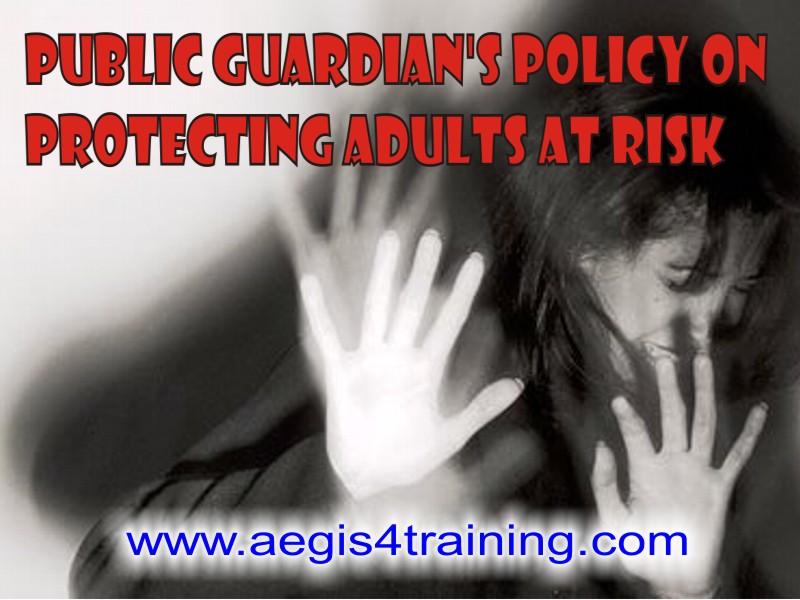Public Guardian’s policy on protecting adults at risk

This rule supports the Public Guardian’s responsibility in safeguarding. It shows how Office of the Public Guardian will work with other agencies to recognise and manage suspicions, allegations and findings of abuse of adults at risk, who are within the Public Guardian’s remit.
Office of the Public Guardian (OPG) is committed to the following principles in all aspects of its safeguarding work:
Empowerment– putting people first and helping those who lack mental capacity feel involved and informed
Protection– supporting victims so they can take action
Prevention– responding quickly to suspected cases of abuse
Proportionality– making sure what we do is appropriate to the situation and for the individual
Partnership– sharing the right information in the right way
Accountability– making sure all agencies have a clear role
The Public Guardian has a legal duty to safeguard:
- Anybody who has deputized and appointed by the Court of Protection
- The donor of any registered enduring power of attorney (EPA) or lasting power of attorney (LPA)
- Anyone for whom the Court of Protection has authorised someone else to carry out a transaction on their behalf, under s16 (2) of the Mental Capacity Act 2005 (single orders).
OPG’s role in safeguarding adults at risk
The ways we work to prevent abuse include:
- Making people aware of legal safeguards such as lasting powers of attorney and the services of OPG and the Court of Protection. We promote safeguarding through talks, training, presentations, publicity and work with our key stakeholders and partners
- Supervising deputies appointed by the Court of Protection to make decisions on behalf of someone who lacks mental capacity
- Developing and reviewing strategies and policies about protecting our clients, both within the Ministry of Justice and in partnership with other government departments and external partners
- Making sure systems are in place to prevent or reduce the possibility of a member of OPG staff abusing an adult at risk
- Working with other agencies, including adult social services and the police.
The ways we investigate reports of abuse include:
- Receiving reports that an adult at risk is being abused
- Answering requests to search the register of deputies and attorneys
- Investigating concerns about the actions of a deputy or registered attorney, or someone acting under a
single order from the Court of Protection
- Working in partnership with other agencies, including adult social services and the police, including
taking part in meetings and case conferences
- Taking part in joint investigations of suspected abuse.
The ways we work to stop abuse include:
- Applying to the Court of Protection to suspend, discharge or replace a deputy and to cancel or revoke an
EPA or LPA
- Providing reports to the Court of Protection under Sections 49 and 58 of the Mental Capacity Act 2005,
to help the court make informed decisions
- Reviewing our client files and visiting clients where we know abuse has happened in the past or if we
feel there’s a risk abuse might happen.
VISIT OUR PRODUCT PAGE!
